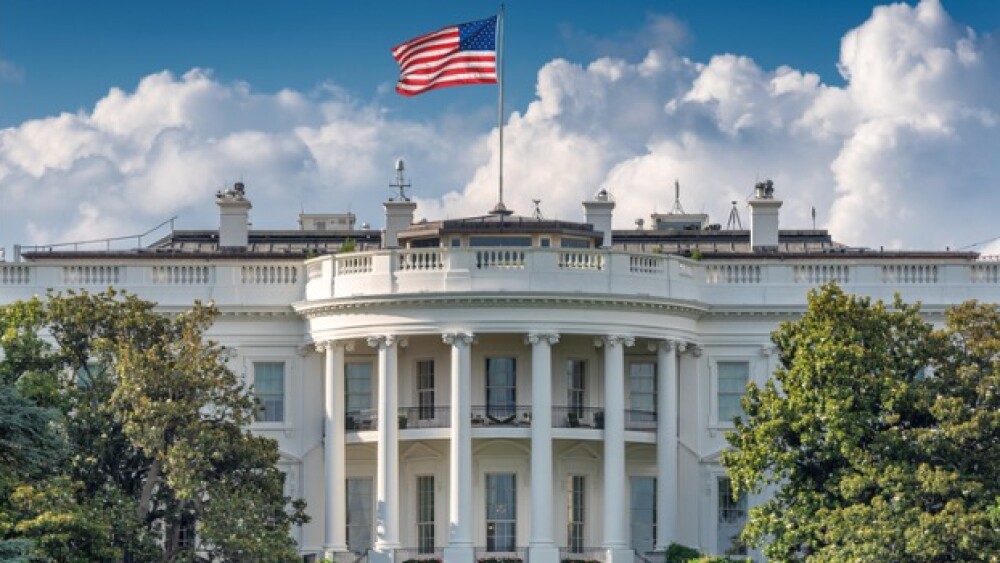President Joe Biden has proposed expansions to the Inflation Reduction Act, including an increase in the annual number of prescription drugs that would be subject to price negotiations to 50, up from 20.
Pictured: The White House in Washington, DC/iStock, lucky-photographer
On the eve of the State of the Union address, the Biden administration on Wednesday unveiled plans to expand the Inflation Reduction Act’s Drug Price Negotiation Program in a bid to lower medication and healthcare costs for U.S. consumers.
The White House is looking to increase the Inflation Reduction Act’s (IRA) current negotiation cap of 20 drugs per year to 50 drugs annually, focusing on medications crucial for seniors such as heart disease, cancer and diabetes medicines.
The plan includes the expansion of rebates that pharma manufacturers need to pay if their drug price hikes outpace inflation. Biden is calling on Congress to require those fees not only for commercial sales but also for drug sales to Medicare.
The Biden administration is also looking to expand the $2,000 cap on out-of-pocket spending for prescription drugs, which will apply to senior beneficiaries of Medicare by 2025.
Biden is asking Congress to apply this out-of-pocket spending limit to all private insurance providers, which will provide “all Americans the peace of mind that comes with knowing that they won’t have to choose between filling their prescription or putting food on the table,” according to the White House.
The Biden administration is also looking to launch a new program that caps Medicare Part D cost-sharing to $2 for certain generic drugs. The Department of Health and Human Services will put out a list containing “dozens” of generic medicines, including satins, beta-blockers and platelet inhibitors.
Biden is expected to mention the proposals in his State of the Union address on Thursday night.
Gaurav Gupta, managing partner of J.P. Morgan Life Sciences Private Capital, told BioSpace that the proposals “would expand a policy that in its current form has already disincentivized biomedical innovation” and that “if ever enacted, this would be a significant threat to American dominance in biopharma.”
Biden’s proposals follow a legislative bill that was recently introduced by Democratic lawmakers in the House of Representatives to vastly expand the IRA. The congressional proposal seeks to expand the drug negotiation program to also cover all people with private insurance, which would include some 164 million workers and their families who get their medical coverage through their employers.
Signed into law by Biden in August 2022, the IRA seeks to generate around $25 billion in yearly drug cost savings for the federal government by 2031. A centerpiece of the IRA is the Medicare Drug Price Negotiation Program, which allows the Centers for Medicare and Medicaid Services (CMS) to negotiate the prices for some of the most widely prescribed medicines, which will take effect in 2026.
The head of Incubate, a lobbying group for venture capital firms in the life sciences, said he’s not surprised that the Biden administration is looking to expand the IRA given that 2024 is a presidential election year.
“What’s disappointing and confusing is that doubling down on a negotiation scheme doesn’t seem like the best way to address out-of-pocket costs for patients,” Incubate Executive Director John Stanford told BioSpace. “The president is calling for the expansion of this program without having seen the first year of it go into place … it’s too soon to call for the expansion.”
The drug price negotiations under the IRA kicked off on Feb. 1, 2024, when CMS was due to send its initial maximum fair proposals to the pharma companies. According to the Biden administration, all 10 manufacturers are participating in the program and have submitted their counteroffers.
The negotiations will continue until Aug. 1, 2024, according to a CMS fact sheet. CMS is slated to publish the final negotiated prices on Sept. 1, 2024.
Peter Rubin, executive director of No Patient Left Behind, a non-profit focused on patient access to affordable medicines, told BioSpace that “rather than expanding price controls to more drugs, the president and Congress could have a bigger impact on long-term cost reduction by fixing the IRA’s small molecule ‘pill penalty,’ which is already undermining new drug R&D on diseases of aging and other conditions.”
Under an IRA provision, biologics are spared from price negotiations for 13 years following approval, while the grace period for small molecules is only nine years. It’s a disparity that some industry stakeholders and lawmakers contend stifles investment and innovation.
Last week, Pfizer briefed investors about its new oncology strategy to build up the company’s biologics portfolio and dramatically reduce small molecules, which executives said was influenced by the IRA’s drug price negotiation provisions.
In an emailed statement to BioSpace, a spokesperson for the Pharmaceutical Research and Manufacturers of America (PhRMA) said the IRA “is already having unintended and harmful consequences that are creating access barriers for patients and stifling research and development of new cures,” adding that “over the last year, investment in small molecule development has declined and insurers are now offering fewer Part D plans because of the IRA.”
By “expanding this bad policy and giving government bureaucrats even more power over individual healthcare decisions,” the Biden administration’s proposal “only exacerbates these issues,” the PhRMA spokesperson said.
Tristan Manalac is an independent science writer based in Metro Manila, Philippines. Reach out to him on LinkedIn or email him at tristan@tristanmanalac.com or tristan.manalac@biospace.com.






